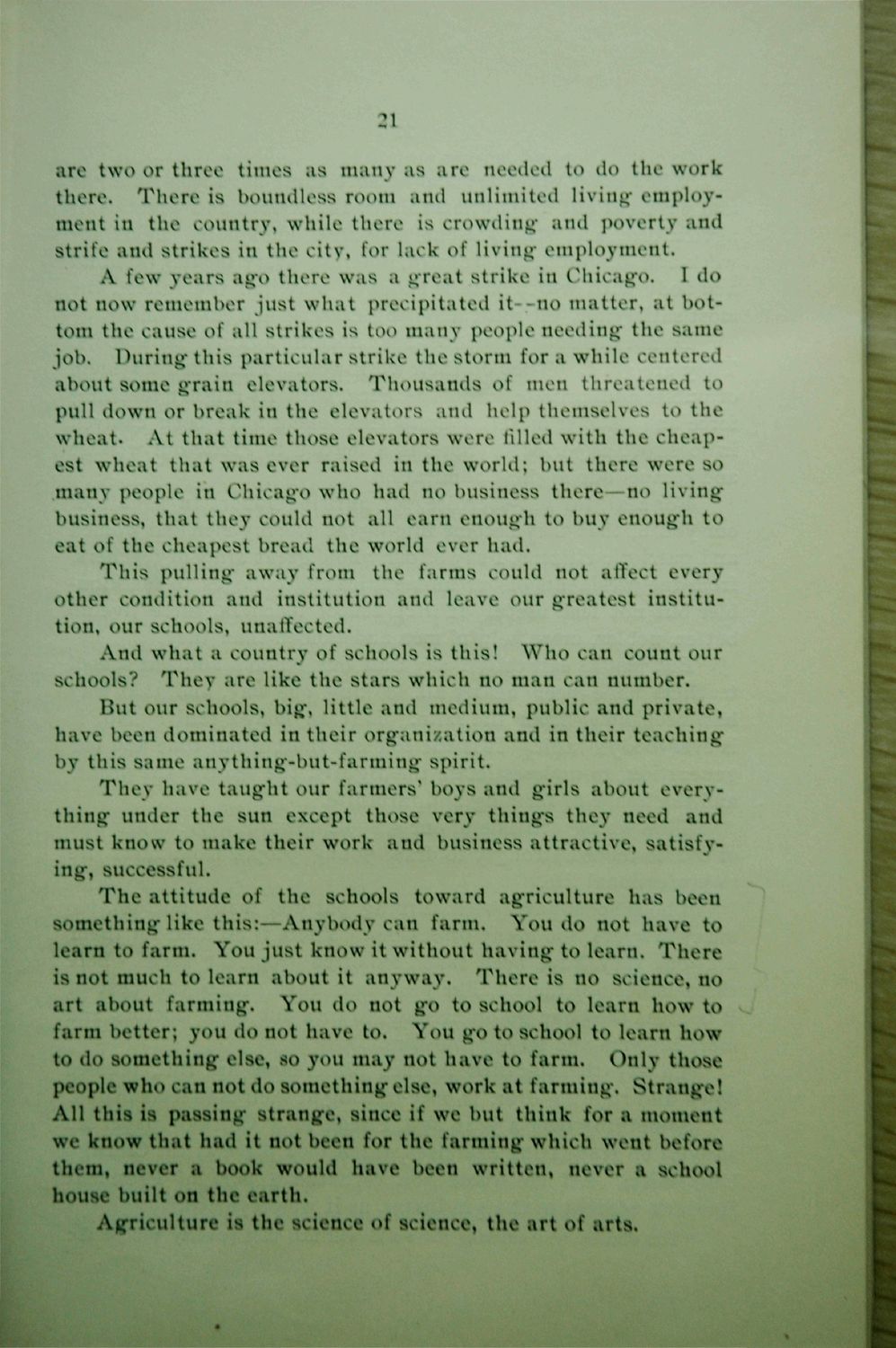| |
| |
Caption: Dedication - Ag Building
This is a reduced-resolution page image for fast online browsing.

EXTRACTED TEXT FROM PAGE:
21 are two or three times as many as are needed to do the work there* There is boundless room and unlimited living employment in the country, while there is crowding and poverty and strife and strikes in the city, for lack of living* employment. A few years ago there was a great strike in Chicago. I do not now remember just what precipitated it- -no matter, at bottom the cause of all strikes is too many people needing the same job. During* this particular strike the storm for a while centered about some grain elevators. Thousands of men threatened to pull down or break in the elevators and help themselves to the wheat. At that time those elevators were filled with the cheapest wheat that was ever raised in the world; but there were so many people in Chicago who had no business there—no living business, that they could not all earn enough to buy enough to eat of the cheapest bread the world ever had. This pulling away from the farms could not affect every other condition and institution and leave our greatest institution, our schools, unaffected. And what a country of schools is thisl Who can count our schools? They are like the stars which no man can number. But our schools, big, little and medium, public and private, have been dominated in their organization and in their teaching by this same anything-but-farming spirit. They have taught our farmers' boys and girls about every* thing under the sun except those very things they need and must know to make their work and business attractive, satisfying:, successful. The attitude of the schools toward agriculture has been something like this:—Anybody can farm. You do not have to learn to farm. You just know it without having to learn. There is not much to learn about it anyway. There is no science, no art about farming. You do not go to school to learn how to farm better; you do not have to. You go to school to learn how to do something else, so you may not have to farm. Only those people who can not do something else, work at farming. Strangle! All this is passing strange, since if we but think for a moment we know that had it not been for the farming which went before them, never a book would have been written, never a school house built on the earth. Agriculture is the science of science, the art of arts.
| |